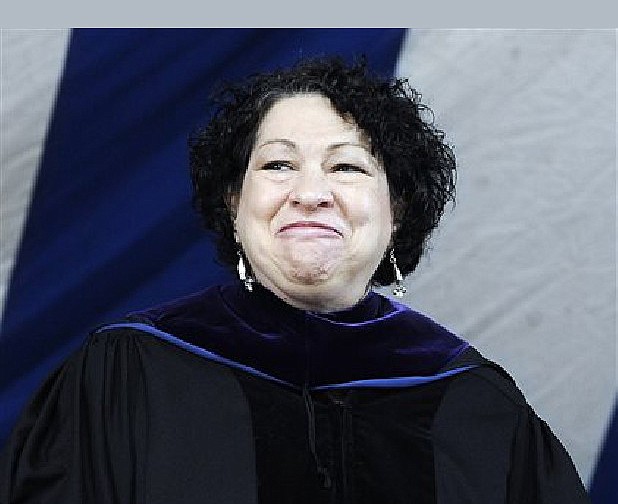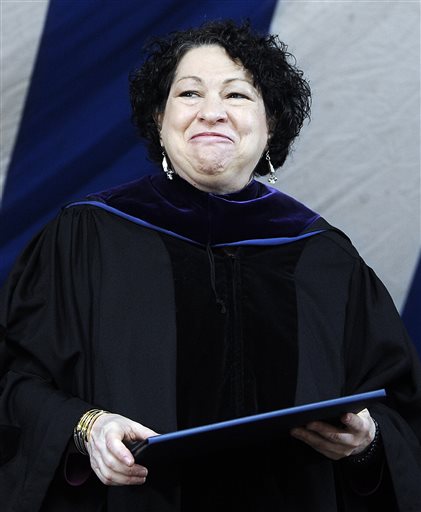WASHINGTON - Only hours before the law was to take effect, a Supreme Court justice on Tuesday blocked implementation of part of President Barack Obama's health care law that would have forced some religion-affiliated organizations to provide health insurance for employees that includes birth control.
Justice Sonia Sotomayor's decision came after a flurry of efforts by Catholic-affiliated groups from around the nation. Those groups had rushed to the federal courts to stop Wednesday's start of portions of the Affordable Care Act, also known as Obamacare.
Sotomayor acted on a request from an organization of Catholic nuns in Denver, the Little Sisters of the Poor Home for the Aged. Its request for an emergency stay had been denied earlier in the day by a federal appeals court.
The government is "temporarily enjoined from enforcing against applicants the contraceptive coverage requirements imposed by the Patient Protection and Affordable Care Act," Sotomayor said in the order.
Sotomayor, who was in New York Tuesday night to lead the final 60-second countdown and push the ceremonial button to signal the descent of the Times Square New Year's Eve ball, gave government officials until 10 a.m. EST Friday to respond to her order.
The law requires employers to provide insurance that covers a range of preventive care, free of charge, including contraception. The Catholic Church prohibits the use of contraceptives.
The Obama administration crafted a compromise, or accommodation, that attempted to create a buffer for religiously affiliated hospitals, universities and social service groups that oppose birth control. The law requires insurers or the health plan's outside administrator to pay for birth control coverage and creates a way to reimburse them.
But for that to work, the nuns would have to sign a form authorizing their insurance company to provide contraceptive coverage, which would still violate their beliefs, argued their attorney, Mark Rienzi.
"Without an emergency injunction, Mother Provincial Loraine Marie Maguire has to decide between two courses of action: (a) sign and submit a self-certification form, thereby violating her religious beliefs; or (b) refuse to sign the form and pay ruinous fines," Rienzi said.
The White House did not comment on the order Tuesday night. In a statement Tuesday night, Rienzi said he was delighted by Sotomayor's order. "The government has lots of ways to deliver contraceptives to people," he said. "It doesn't need to force nuns to participate."
Sotomayor's decision to delay the contraceptive portion of the law was joined by the U.S. Court of Appeals for the District of Columbia Circuit, which also issued an emergency stay for Catholic-affiliated groups challenging the contraceptive provision, including the Archdiocese of Washington, D.C., and Catholic University. But one judge on the three-judge panel that made the decision, Judge David S. Tatel, said he would have denied their motion.
"Because I believe that appellants are unlikely to prevail on their claim that the challenged provision imposes a 'substantial burden' under the Religious Freedom Restoration Act, I would deny their application for an injunction pending appeal," Tatel said.
The archdiocese praised the appeals court's action in a statement.
"This action by the U.S. Court of Appeals for the D.C. Circuit is in line with the rulings of courts all across the country which have held that the HHS mandate imposes a substantial and impermissible burden on the free exercise of religion," the archdiocese said. "These decisions also vindicate the pledge of the U.S. Catholic bishops to stand united in resolute defense of the first and most sacred freedom - religious liberty."
The Supreme Court already has decided to rule on whether businesses may use religious objections to escape a requirement to cover birth control for employees. That case, which involves Hobby Lobby Inc., an Oklahoma City-based arts and crafts chain with 13,000 full-time employees, is expected to be argued in March and decided by summer.

